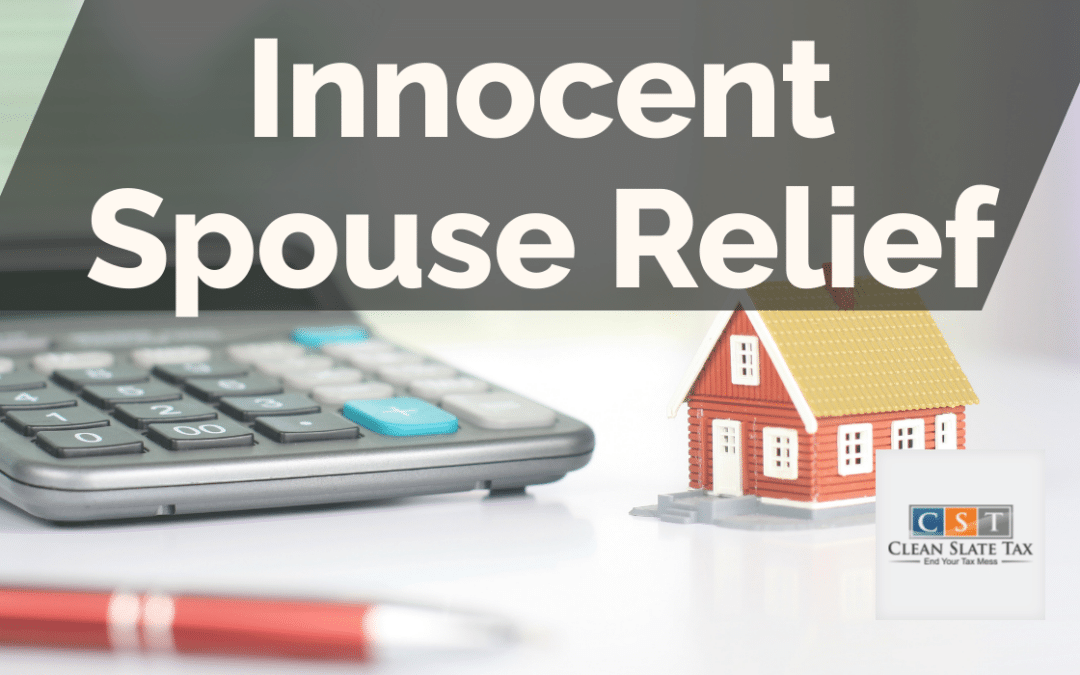Innocent Spouse Relief: Protecting Innocent Taxpayers from Joint Tax Liability
Marriage requires a lot of trust and cooperation to work, but sometimes even the most solid partnerships can falter when it comes to taxes. When filing jointly, both spouses are responsible for the taxes owed, which can result in one partner having to pay for the other’s mistakes. In some cases, one spouse may be completely unaware of their partner’s actions or may have been intimidated into signing off on a return they didn’t fully understand or agree with.
This is where Innocent Spouse Relief comes in. This provision in the tax code recognizes that there are situations where one spouse should not be held responsible for the tax liabilities of their partner. Innocent Spouse Relief allows eligible taxpayers to be relieved of the joint, and several liability assessed on a joint tax return, even if this means that only one spouse or former spouse will be held liable for the tax owed.
Who is Eligible for Innocent Spouse Relief?
In order to qualify for Innocent Spouse Relief, you must meet the following requirements:
- You filed a joint return that has an understatement of tax that’s solely attributable to your spouse’s erroneous item (e.g. unreported income, incorrect deductions, credits or basis).
- You can prove that at the time you signed the joint return, you didn’t know and didn’t have reason to know that there was an understatement of tax.
- Taking into account all the facts and circumstances, it would be unfair to hold you liable for the understatement of tax.
How to Apply for Innocent Spouse Relief
If you believe that you qualify for Innocent Spouse Relief, you can file Form 8857, Request for Innocent Spouse Relief with the IRS. The form will ask for detailed information about your tax situation, including why you believe you qualify for relief, and any evidence you have to support your claim. You can include a statement explaining your situation in more detail, along with any relevant documents to support your claim.
Keep in mind that the IRS will make a decision based on the information you provide on the form, so it’s crucial that you include all relevant information and supporting documentation. If your application is denied, you have the right to appeal the decision. You can request an appeal within 30 days of receiving the denial letter from the IRS.
Other Forms of Relief
Innocent Spouse Relief isn’t the only way to protect yourself from joint tax liability. Here are some other forms of relief you may want to consider:
Separation of Liability Relief
If you’re divorced or legally separated from the spouse with whom you filed the joint return, you may qualify for Separation of Liability Relief. This relief allows the IRS to separate the tax liability on a joint return between you and your former spouse, so that you’re only responsible for the portion of the tax that you owe.
Equitable Relief
Equitable Relief is available for taxpayers who don’t qualify for Innocent Spouse Relief or Separation of Liability Relief. This type of relief is designed for cases where the tax issue isn’t attributable to your spouse, but it would be unfair to hold you responsible for the taxes owed. Examples include cases of domestic abuse, where one partner prevented the other from reviewing and signing the return, or when the tax issue arises from a mistake made by your spouse on a joint return.
FAQs
Q: What if my spouse filed a fraudulent tax return?
If your spouse filed a fraudulent tax return without your knowledge or consent, you may qualify for Innocent Spouse Relief. However, if you knew or had reason to know that the return was fraudulent, you won’t be eligible for relief.
Q: How long do I have to file for Innocent Spouse Relief?
You can file for Innocent Spouse Relief at any time, but the IRS recommends that you do so as soon as possible after you become aware of the tax liability.
Q: What if I don’t have the records I need to support my request for relief?
You can still file for Innocent Spouse Relief even if you don’t have all the records you need. However, you should do your best to provide as much supporting documentation as possible, such as bank statements, pay stubs, and any other documents related to the tax issue.
Conclusion
Innocent Spouse Relief is an important tool for protecting taxpayers who find themselves in a difficult situation due to their spouse’s tax liability. If you think you may qualify for relief, it’s important to gather all the necessary documentation and file your request as soon as possible. Remember, the IRS will make a decision based on the information you provide, so it’s important to be thorough and detailed in your application.





